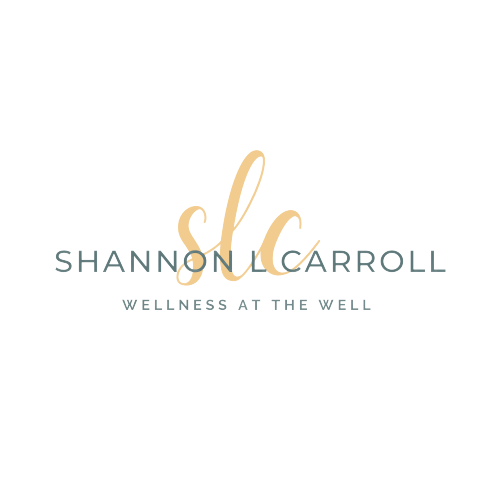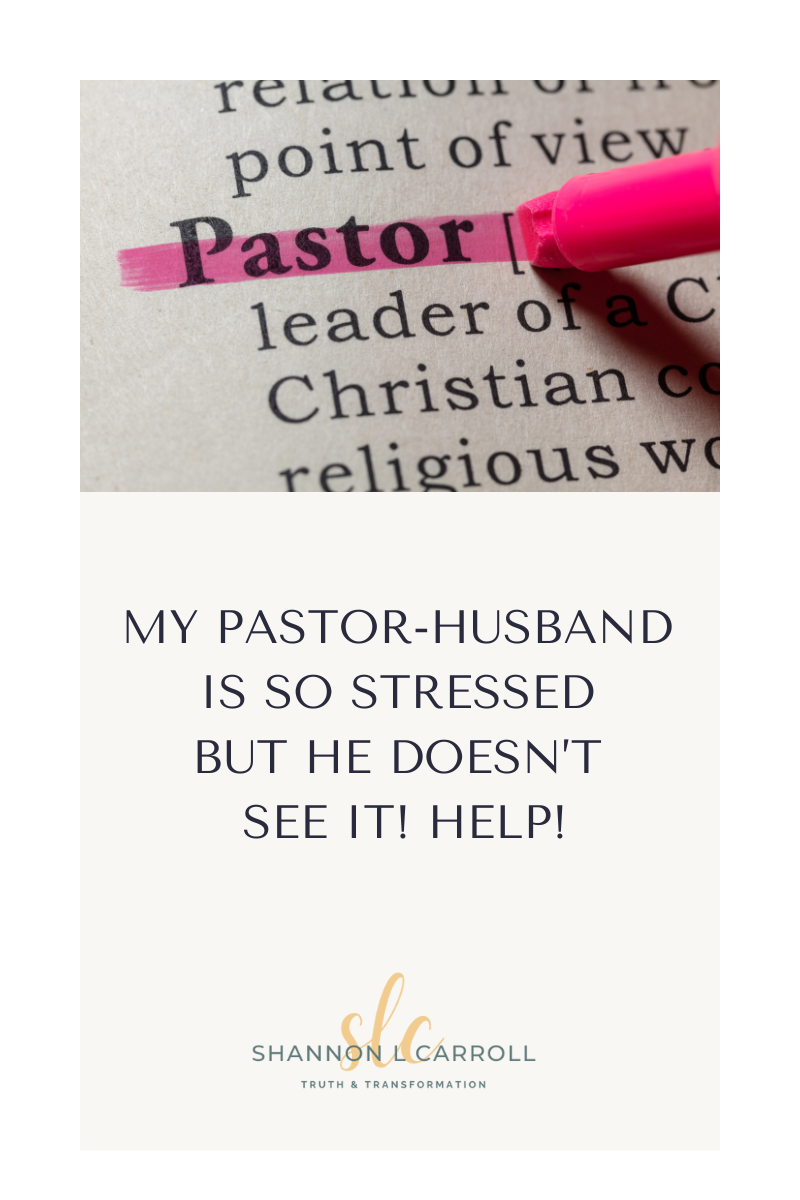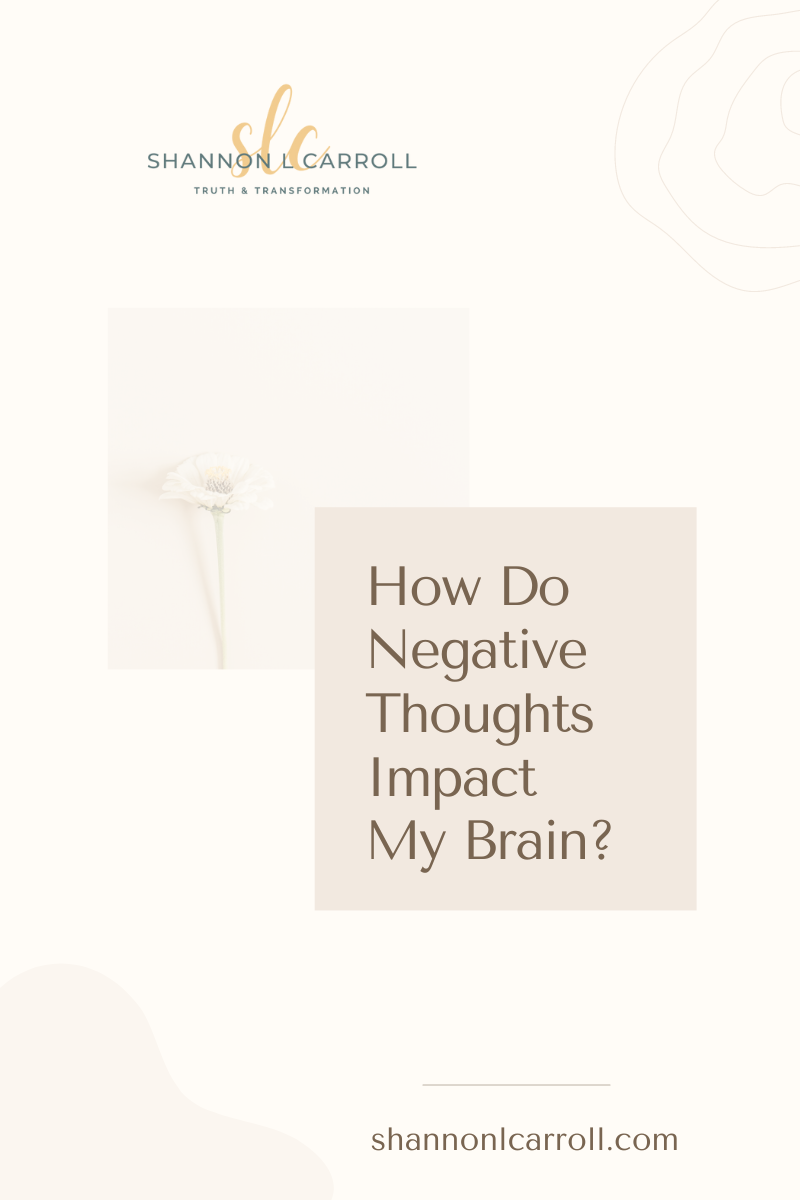Top Signs Your Brain Needs Help
Written by Shannon Carroll
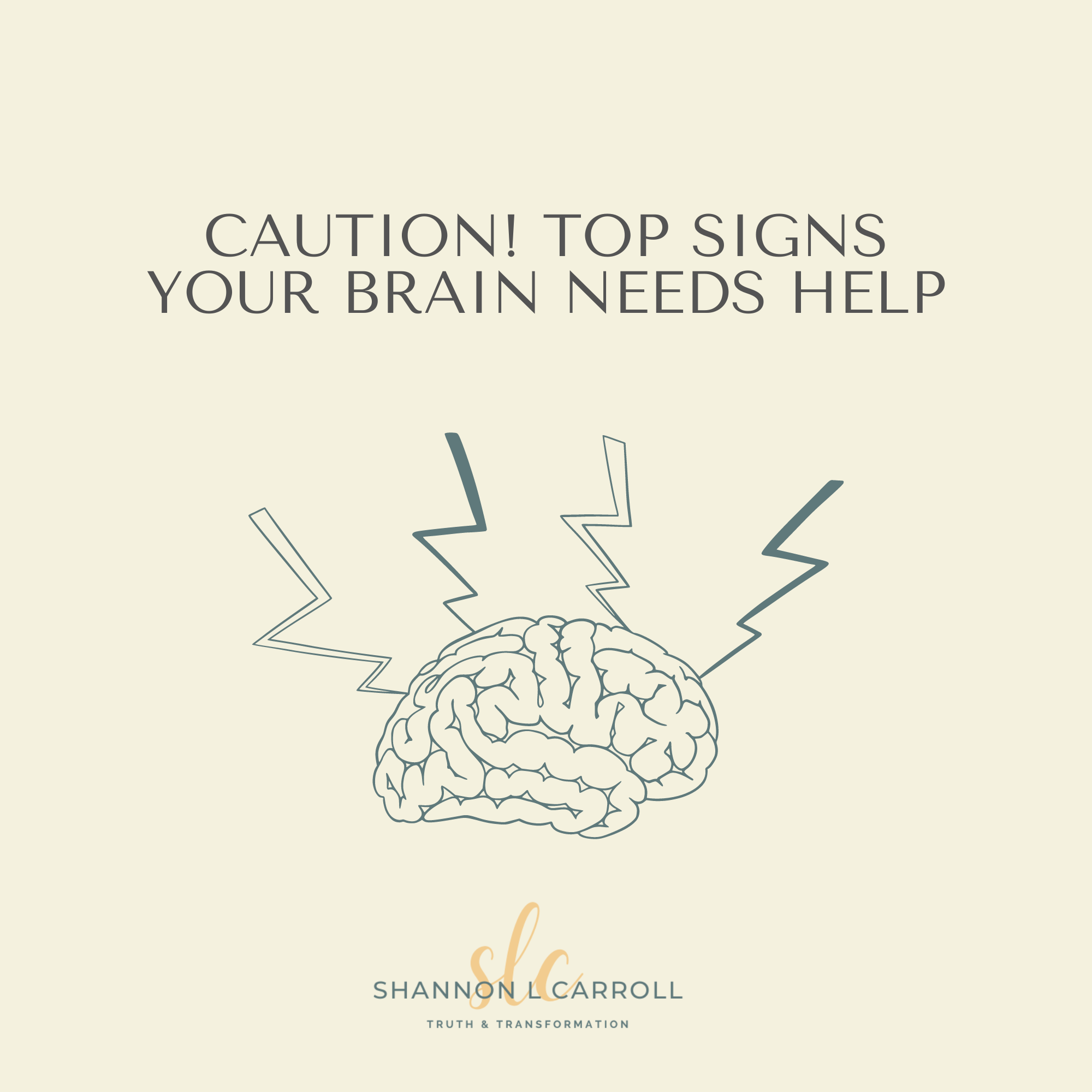
Caution! Warning! Alert!!
Hey YOU! Are you even paying attention to me? Up here – I’m UP HERE!
This is your brain speaking. I’m trying to talk to you and I’m not sure why you’re ignoring me. It seems I’ve given you sign after sign that I’m tired and on overload. But you keep pushing my voice aside and adding on more stress. I can only take so much and I’ve about had it. I’ll keep giving you signals but I’m warning you – it’s not pretty when I shut down. I sure hope you’ll wake up to my cautions before it’s too late.
Goodness, wouldn’t it be nice if our brain could actually send us an email or text message like this? That sure would take the guess-work out of life. And maybe it would actually get our attention long enough to take notice.
Oh but wait! Our brain DOES talk to us and is actively giving us clues as to its health and capacity. But unfortunately, I’m pretty sure the majority of us don’t even realize it.
I greatly appreciate the feature on cars that pops up with a warning light or symbol that indicates there’s a problem and alerts us that we need to take quick action. Isn’t that a helpful feature?
Did you know our body and brain actually do the same thing? We’ve got the same feature! We have warning lights built in to help us recognize that there’s a problem so we can fix it. The problem is we often shrug the warning aside, we find ways to justify it and we definitely downplay its seriousness until it’s too late.
Before David’s brain effectively took a vacation and clocked out when he had amnesia in the spring of 2019, we had warning signs that things were on a precarious course. Looking back, we realize that the symptoms he started to experience more frequently were an attempt of the body to give him an opportunity to change course before he lost his mind. You probably know the story – we didn’t listen and the brain had a massive breakdown. (You can read the whole fascinating story in our #1 bestselling book, “One Thing Remains.”

Some of the symptoms David had when his “check engine light” came on were:
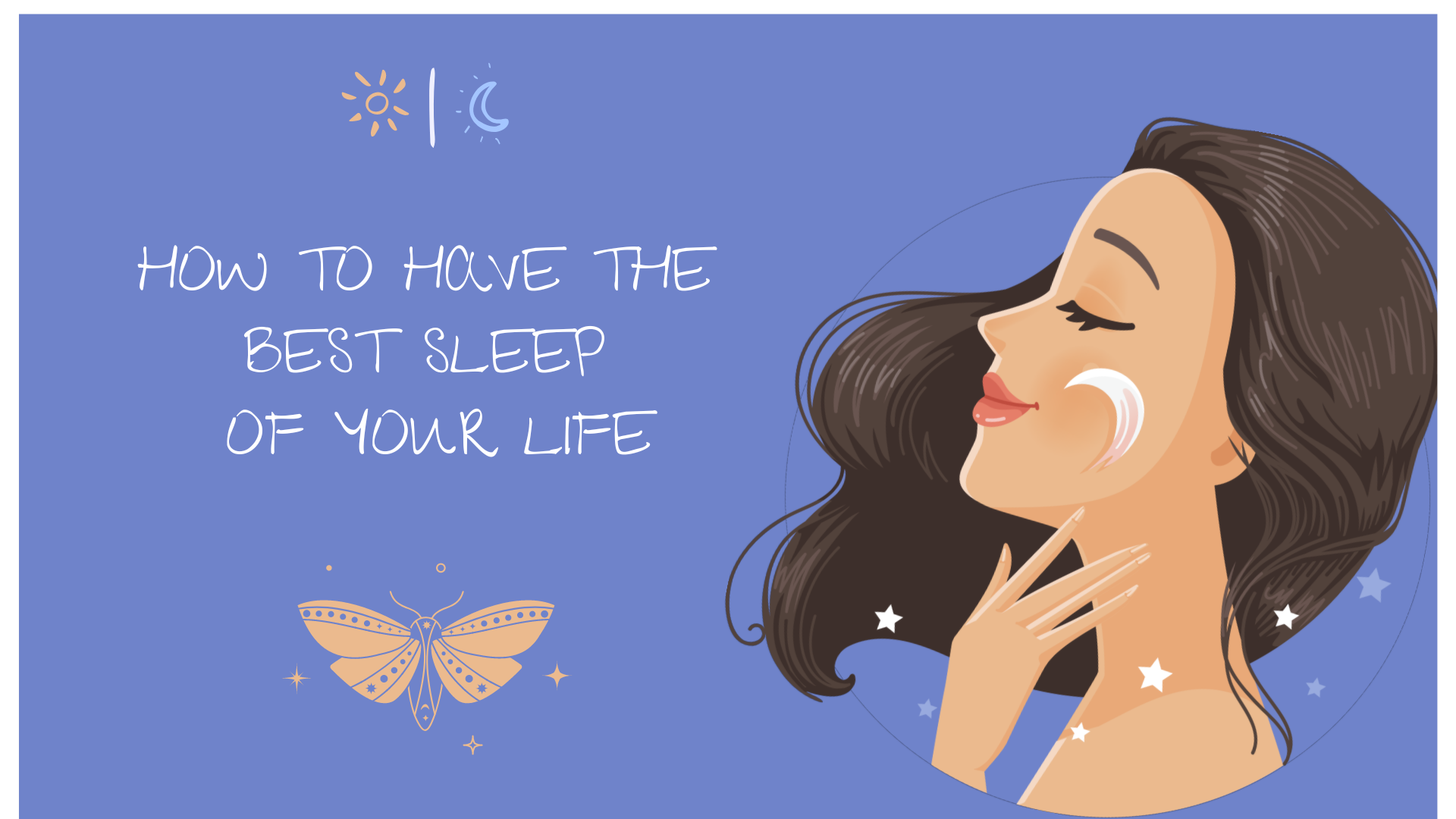
If sleep is an area where you are struggling and you feel like you are constantly tired, you might want to check out my free sleep email series, where I teach how to improve both your quality and quantity of sleep – without having to use medication.

Here are some other “red alert” symptoms that the brain could be show-casing if it needs some attention:
- Difficulty finding your words
- Memory loss
- Inability to concentrate or focus for regular periods of time
- Disinterest in activities you once enjoyed
- Brain fog
- Depression, anxiety and sadness
- Headaches
- Eye fatigue
- Frequent colds and illnesses
- Lack of stress resiliency
Do any of these symptoms sound familiar? Have you or a loved one experienced any of them? We can all probably look back at various seasons of life when we knew we were on overload and our brain was gently screaming at us to slow down.
I never used to think about my brain. I took it for granted and just assumed it was “up there” in my head running the show and didn’t need any extra TLC from me. I now know and am convinced that we must make it a priority to care for our brain and give it all the love we give to other priorities in our life.
I’ve developed a Brain Breakthrough Protocol based on my research during David’s amnesia and in it, I teach a myriad of lifestyle and nutrition tips to help improve our brain’s function and give it the support it is asking for. Here’s the link to watch the webinar!
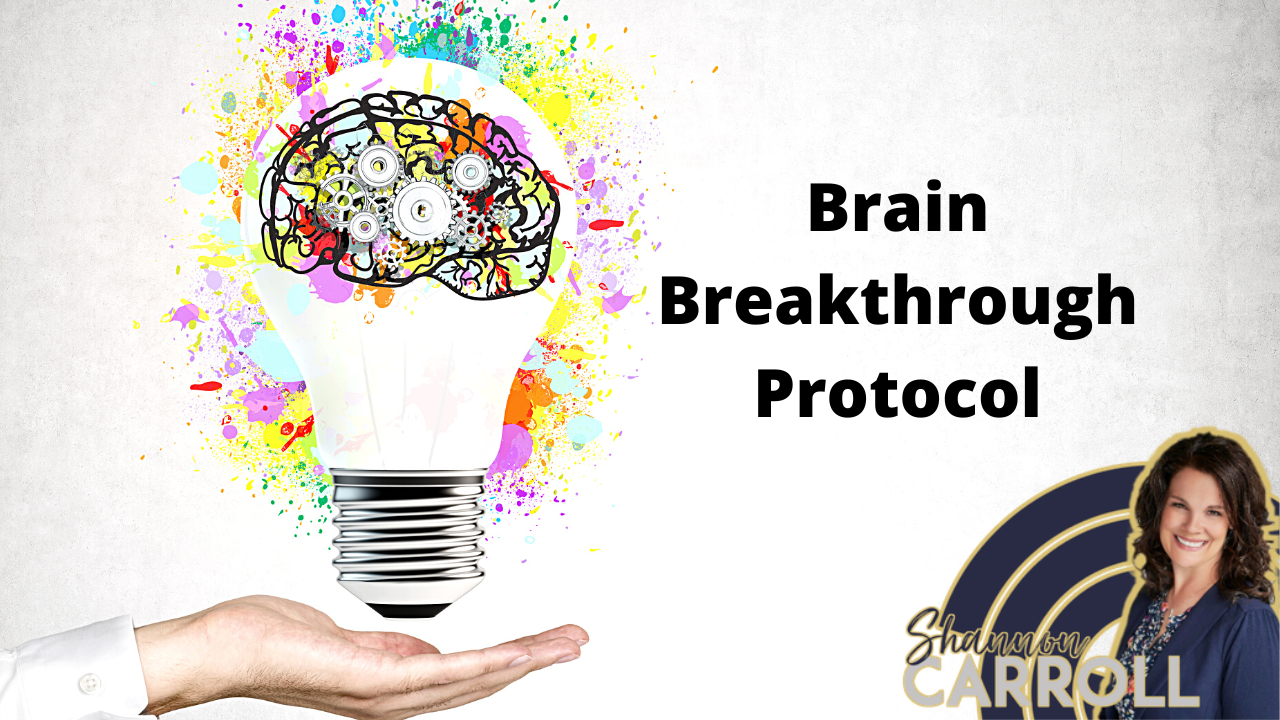
Here’s the bottom line – your brain can only go on autopilot for so long. If the check engine light is on, you’d best be getting it into the brain shop for some diagnostics and love pretty soon! Thankfully, the brain is resilient and responds super well to just a little attention.
*I only recommend products I would use myself. This post may contain affiliate links that at no additional cost to you, I may earn a small commission.

Shannon L. Carroll
Throughout her life, Shannon has had a dual love for effective communication and discovering truth. Thousands of families across hundreds of platforms – both in person and online – have heard her teach about practical wellness tips and inspirational lessons from God’s Word. She’s passionate about helping women (& fellow pastor’s wives!) be well in mind, body and spirit. She assists her audiences in learning how they can live: nourished & restored, healed & whole, while being grounded in Truth.
Top Signs Your Brain Needs Help
Written by Shannon Carroll

Caution! Warning! Alert!!
Hey YOU! Are you even paying attention to me? Up here – I’m UP HERE!
This is your brain speaking. I’m trying to talk to you and I’m not sure why you’re ignoring me. It seems I’ve given you sign after sign that I’m tired and on overload. But you keep pushing my voice aside and adding on more stress. I can only take so much and I’ve about had it. I’ll keep giving you signals but I’m warning you – it’s not pretty when I shut down. I sure hope you’ll wake up to my cautions before it’s too late.
Goodness, wouldn’t it be nice if our brain could actually send us an email or text message like this? That sure would take the guess-work out of life. And maybe it would actually get our attention long enough to take notice.
Oh but wait! Our brain DOES talk to us and is actively giving us clues as to its health and capacity. But unfortunately, I’m pretty sure the majority of us don’t even realize it.
I greatly appreciate the feature on cars that pops up with a warning light or symbol that indicates there’s a problem and alerts us that we need to take quick action. Isn’t that a helpful feature?
Did you know our body and brain actually do the same thing? We’ve got the same feature! We have warning lights built in to help us recognize that there’s a problem so we can fix it. The problem is we often shrug the warning aside, we find ways to justify it and we definitely downplay its seriousness until it’s too late.
Before David’s brain effectively took a vacation and clocked out when he had amnesia in the spring of 2019, we had warning signs that things were on a precarious course. Looking back, we realize that the symptoms he started to experience more frequently were an attempt of the body to give him an opportunity to change course before he lost his mind. You probably know the story – we didn’t listen and the brain had a massive breakdown.
(You can read the whole fascinating story in our #1 bestselling book, “One Thing Remains.”)

Some of the symptoms David had when his “check engine light” came on were:

If sleep is an area where you are struggling and you feel like you are constantly tired, you might want to check out my free sleep email series, where I teach how to improve both your quality and quantity of sleep – without having to use medication.

Here are some other “red alert” symptoms that the brain could be show-casing if it needs some attention:
- Difficulty finding your words
- Memory loss
- Inability to concentrate or focus for regular periods of time
- Disinterest in activities you once enjoyed
- Brain fog
- Depression, anxiety and sadness
- Headaches
- Eye fatigue
- Frequent colds and illnesses
- Lack of stress resiliency
Do any of these symptoms sound familiar? Have you or a loved one experienced any of them? We can all probably look back at various seasons of life when we knew we were on overload and our brain was gently screaming at us to slow down.
I never used to think about my brain. I took it for granted and just assumed it was “up there” in my head running the show and didn’t need any extra TLC from me. I now know and am convinced that we must make it a priority to care for our brain and give it all the love we give to other priorities in our life.
I’ve developed a Brain Breakthrough Protocol based on my research during David’s amnesia and in it, I teach a myriad of lifestyle and nutrition tips to help improve our brain’s function and give it the support it is asking for. Here’s the link to watch the webinar!

Here’s the bottom line – your brain can only go on autopilot for so long. If the check engine light is on, you’d best be getting it into the brain shop for some diagnostics and love pretty soon! Thankfully, the brain is resilient and responds super well to just a little attention.
*I only recommend products I would use myself. This post may contain affiliate links that at no additional cost to you, I may earn a small commission.

Shannon L. Carroll
Throughout her life, Shannon has had a dual love for effective communication and discovering truth. Thousands of families across hundreds of platforms – both in person and online – have heard her teach about practical wellness tips and inspirational lessons from God’s Word. She’s passionate about helping women (& fellow pastor’s wives!) be well in mind, body and spirit. She assists her audiences in learning how they can live: nourished & restored, healed & whole, while being grounded in Truth.
